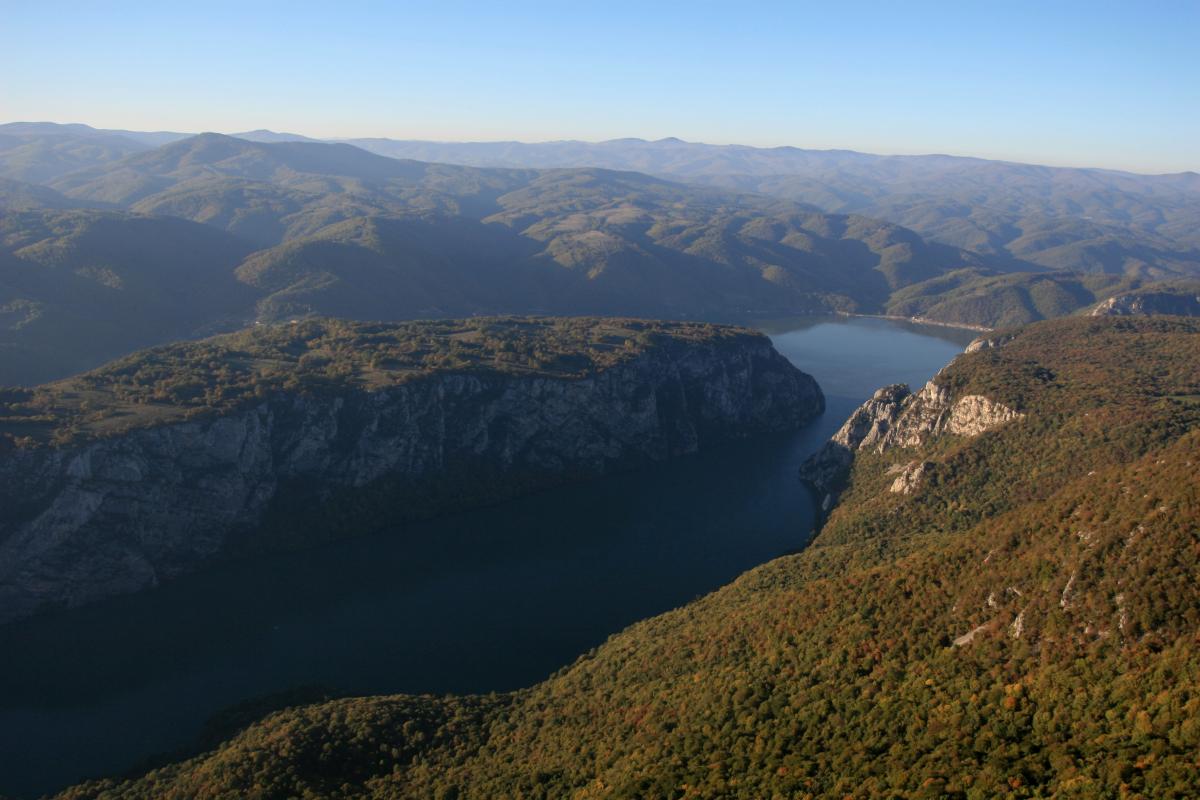Valuing a regional approach to biodiversity conservation
Contributing to the Post-2020 Global Biodiversity Framework, countries of Central and Eastern Europe recognised the efforts made through a new model of cooperation – the Biodiversity Task Force of South-East Europe that is advancing strategic planning for conservation and sustainable use of biodiversity in the Western Balkans. Parties of Central and Eastern Europe also highlighted the Green Agenda for the Western Balkans as a unique opportunity to develop inclusive instruments for cooperation on biodiversity, and mobilise resources to bend the curve of biodiversity loss in the region.

Djerdap National Park, Serbia
Photo: IUCN/Boris Erg
Background or the Aichi Targets
The international community agreed on 20 targets in 2010 – the Aichi Targets, aiming to alleviate global biodiversity decline. Ten years later, the Global Biodiversity Outlook 5, a flagship publication of the Convention on Biological Diversity (CBD), showed that only six of these targets were partially achieved and none fully. Despite the ongoing efforts, biodiversity is deteriorating globally.
“The galloping biodiversity decline is causing irreversible harm to natural ecosystems and our society as a whole. If the year 2020 is to be promoted as a super year for nature, we need to make every effort to reverse this negative trend based on evidence and sound expert advice. As the Secretariat of Biodiversity Task Force of South-East Europe, IUCN is providing continuous support to regional and national partners in safeguarding South-East Europe’s unparalleled biodiversity,” says Boris Erg, Director of the IUCN Regional Office for Eastern Europe and Central Asia.
Zero-draft of the post-2020 biodiversity framework
To address this challenge, an updated zero-draft of the post-2020 biodiversity framework was published in August, under the auspices of the Convention on Biological Diversity, and discussed at a number of special virtual sessions, such as at the twenty-fourth meeting of the Subsidiary Body on Scientific, Technical and Technological Advice (SBSTTA-24) and the third meeting of the Subsidiary Body on Implementation (SBI-3).
Jelena Dučić and Snežana Prokić contributed to the Special virtual Joint Session of SBSTTA-24 and SBI-3 as representatives of the Ministry of Environmental Protection of the Republic of Serbia and members of the Biodiversity Task Force of South-East Europe, by submitting two statements that include elements related to the Task Force.
“The Green Agenda for the Western Balkans will help strengthen nature conservation in the region and efficiently align the countries with the EU Green Deal recovery plan. We look forward to its finalisation,” said Snežana Prokić, CBD SBSTTA Focal Point from Serbia.
The delegates from Serbia proposed inclusion of the following key points of a statement given by Georgia on behalf of the countries of Central and Eastern Europe:
- Capacity building and resource mobilization are key for the implementation of the post2020 goals. It is important to increase the funding for biodiversity from all sources while assuring the efficient use of existing resources.
- The Green Agenda for the Western Balkans currently being prepared within the EU Green Deal is a unique opportunity – it is expected to include a robust investment plan with inclusive instruments for cooperation on biodiversity, clean energy and green economic recovery.
- The monitoring framework is a major step towards global progress in the conservation, restoration and sustainable use of biodiversity. Some countries may not be able to monitor new goals quickly and efficiently. Besides the full list of indicators, it is necessary to define how the countries will report on their progress towards the new objectives.
- CEE Parties call for the increased involvement of other biodiversity-related and multilateral environmental agreements in the post-2020 global biodiversity framework.
Read the full statement here.
The Deutsche Gesellschaft für Internationale Zusammenarbeit - Open Regional Fund for South-East Europe – Biodiversity (GIZ/ORF BD), funded by the Federal Ministry for Economic Cooperation and Development of Germany (BMZ) supported the establishment and supports the activities of the Biodiversity Task Force for South-East Europe.



